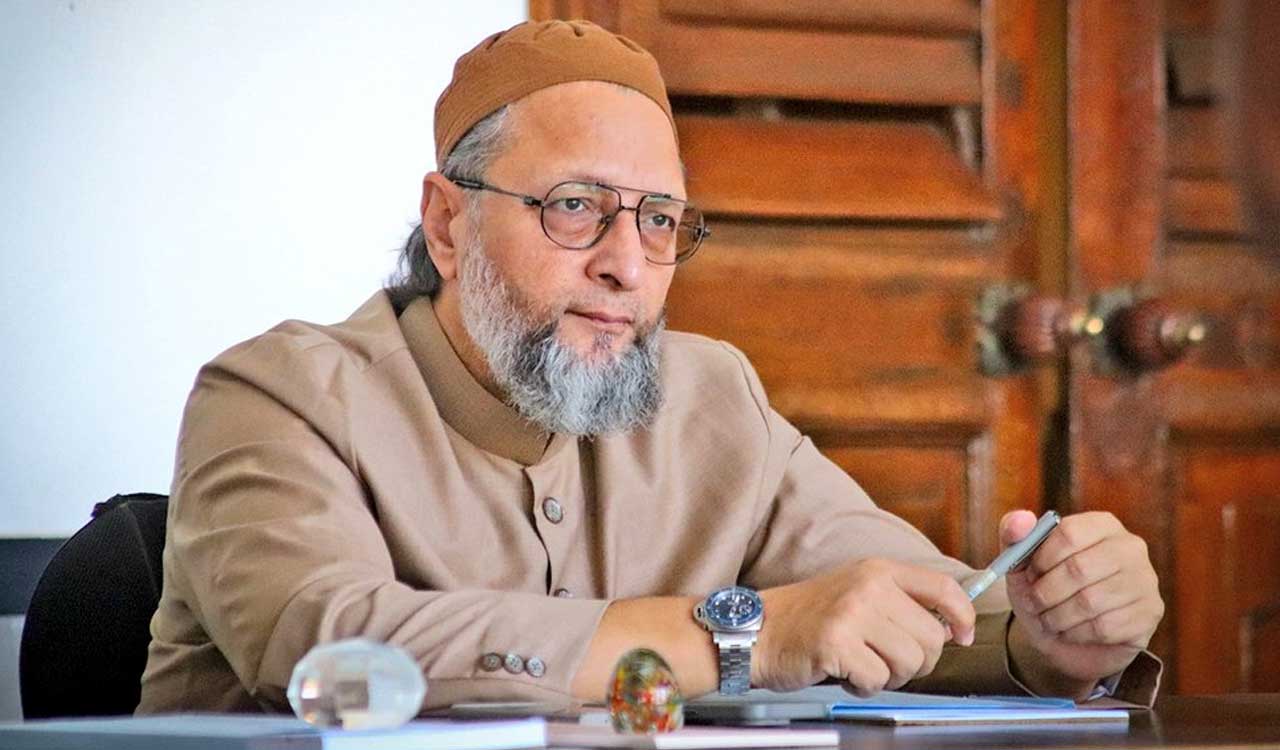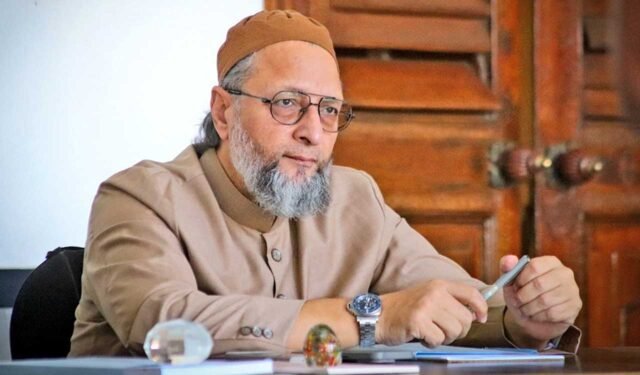That Owaisi, a vocal and consistent critic of the BJP, has been chosen to represent India abroad in the wake of the recent terrorist attack in Pahalgam by the BJP-led National Democratic Alliance (NDA) government
Published Date – 31 May 2025, 09:06 AM

Asaduddin Owaisi
Hyderabad: The All India Majlis-e-Ittehadul Muslimeen (AIMIM) has come a long way from its origins as a local voice for the Old City of Hyderabad. Over the past decade, under the leadership of its firebrand Hyderabad MP, Asaduddin Owaisi, the party has expanded its footprints and influence, emerging as a significant force in Indian politics and a staunch advocate for marginalised communities nationwide.
In a surprising yet telling development, the BJP-led National Democratic Alliance (NDA) government has included Owaisi in an all-party delegation tasked with presenting India’s case on the international stage in the wake of the recent terrorist attack in Pahalgam. Dubbed “Operation Sindoor,” this diplomatic outreach is part of India’s effort to expose Pakistan’s role in sponsoring cross-border terrorism and to affirm its policy of zero tolerance towards such acts.
That Owaisi, a vocal and consistent critic of the BJP, has been chosen to represent India abroad speaks volumes. There is no love lost between the Majlis and the saffron party and their hostility spills out often in fiery debates, sharp accusations, and ideological clashes. And yet his inclusion in the diplomatic outreach programme signals a rare but significant moment of national unity. The firebrand MP, known for his bold critiques of the BJP’s policies, particularly those affecting minorities, is now at the forefront of India’s diplomatic messaging.
Owaisi has long taken the government to task over its handling of issues concerning India’s Muslim population. He has been especially critical of the proposed amendments to the Wakf Act, which he argues threaten to undermine the autonomy and protection of Muslim charitable endowments. He has also been one of the most outspoken voices against what he describes as the BJP’s “targeting” of minorities, accusing the ruling party of enabling mob violence, institutional bias, and religious polarisation.
Despite all this, Owaisi’s participation in the delegation illustrates a mature political balancing act. It also shows that when it comes to matters of national interest fierce opposition at home does not preclude cooperation. Owaisi’s presence, like those of other opposition leaders, adds depth and diversity to the delegation, and sends out the message that when it comes to combating terrorism, India stands united.
In his international engagements as part of the all-party mission, Owaisi is going hammer and tongs against Pakistan, holding it accountable. A good orator, he articulates India’s stance with clarity and conviction, bringing attention to the long-standing issue of cross-border terrorism and the urgent need for a coordinated global response. His calling Pakistan as a ‘failed State’, and his mocking of its leaders as ‘stupid jokers’ and ‘official beggars’ has not gone unnoticed. His arguments carry weight not just because of their substance, but because they come from a leader often seen as a government critic.
Importantly, Owaisi is the only MP from Telangana included in the delegation, which further enhances his national profile. His presence highlights not just his individual capabilities but also the growing recognition of regional leaders in shaping India’s voice on global platforms.
The inclusion of AIMIM in this crucial diplomatic effort raises inevitable questions about the future of BJP-AIMIM relations. Could this be the beginning of a thaw? Is there room for more engagement, if not collaboration, on other national issues? While it is unlikely that their fundamental ideological differences will be bridged anytime soon, this episode demonstrates that even fierce rivals can find common ground when it comes to matters of national security.
Owaisi, true to form, has not softened his stance on domestic concerns. He continues to criticise the government on its treatment of minorities, and his objections to the Wakf Bill and other contentious legislation remain steadfast. His participation in the all-party delegation, it is said, does not signal political alignment. Rather it signals political maturity and the ability to rise above partisanship when the country calls for unity.
For the AIMIM, it is definitely a moment of national acknowledgment, recognition of its growing relevance and the statesmanship of its leader. For the BJP-led government, it is an example of pragmatic decision-making: recognising the value of dissenting voices in a democracy.






